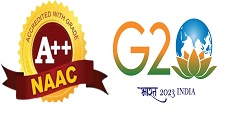Specility Centre
Medical Alerts
Introduction
Introduction:
An integrative approach emphasizes treating the whole person by utilizing all appropriate therapeutic methods, healthcare professionals, and disciplines to promote optimal health and healing. In India, practitioners of Ayurveda and other AYUSH systems are actively engaged in the prevention and management of various types of cancer across different regions. These traditional systems place greater emphasis on prevention rather than treatment, a perspective particularly relevant to cancer care. Preventive strategies, rooted in lifestyle modifications such as Sadvritta (ethical living) and Achara Rasayana (behavioral rejuvenation), are central to the AYUSH approach.
In terms of management, these systems offer valuable support through adjuvant therapies that help mitigate the side effects of conventional cancer treatments like chemotherapy and radiotherapy. There is growing evidence supporting their effectiveness in reducing these complications. Moving forward, successful and experienced cancer practitioners from the AYUSH domain will be brought together via social media and other platforms to collaborate. Their clinically validated treatment approaches—including Rasayana (rejuvenation therapy), Panchakarma (detoxification procedures), and other modalities—will be carefully evaluated and considered for future research and integration into comprehensive cancer care strategies.
Role in palliative care:
To ensure quick restoration of optimal function, early and continued aggressive rehabilitation interventions should be provided, including physical and occupational therapy. Application of rehabilitation techniques (Panchakarma and other) frequently results in a swift functional improvement and a reduction of subjective complaints, even when the prognosis for life is considered poor. These interventions, when offered in an integrated and timely fashion, prolong life, protect the organs and residual healthy tissue, reduction in pain, and maximize self-care and mobility skills, and thereby help to reduce the stigma of cancer and physical impairment while providing dignity and a better quality of life for the cancer patient.
Need for integration:
Integrating traditional medicine into cancer care is essential for providing holistic, patient-centered treatment that addresses not only the disease but also the physical, emotional, and spiritual well-being of patients. Traditional systems such as Ayurveda and other AYUSH modalities offer preventive strategies, lifestyle modifications, and supportive therapies that can help reduce treatment side effects, enhance quality of life, and promote recovery. More than 80% of the population in 170 countries registered with the World Health Organization continues to use traditional medicines even today, necessitating various fields work together to develop a well-researched, safe, effective, affordable, and authentic treatment protocol that provides comprehensive patient care and improved overall outcomes in cancer management.
Objective:
Dedicated to engaging a global community of health professionals and health seekers in innovative education, training, leadership, inter-professional collaboration, research, and advocacy that embraces all global healing traditions, to promote the creation of health and the delivery of evidence-informed comprehensive, affordable, sustainable person-centered care in a cancer patient.
Areas of integration-
- Primary prevention
- Ayurveda Diet and Lifestyle advise and practice
- Individualized daily and seasonal regimen to follow
- Biopurificatory methods (shodhana/panchakarma) for detoxifying the body
- Rasayana therapy (rejuvination therapy)
- Chemo prevention
- Chemo/Radio adjuvant therapy
- Neoadjuvant, Adjuvant medications to reduce the side effects
- Stand-alone therapy
- Unfit for Chemo/Radiotherapy
- Concerned about prevention of recurrence
- Unwilling patients due to cause of cost of treatment
- Palliative and Therapeutic intent for the patients with advanced stage of cancer and unfit for chemo and radiotherapy
- Rehabilitation for cancer survivors by Ayurveda methods
- Development of integrative protocols as per the stage and type of cancers
- Carry out high quality collaborative clinical research to evolve innovative solutions to the existing problem of the prevalent and emergent cancers in the country which are feasible and cost effective.
- Jointly organizing the awareness programs
- Joint cancer screening facilities
- Joint integrative oncology conferences and CME
- Faculty exchange program



